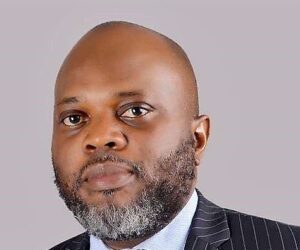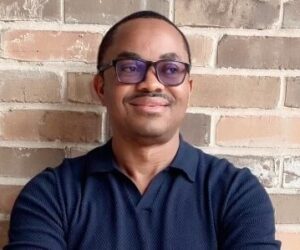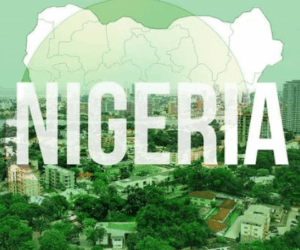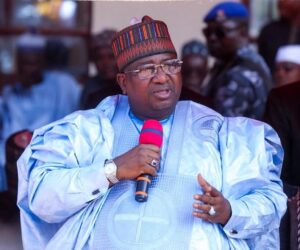
Drawing on the wisdom of Aristotle, “Whatever lies within our power to do lies also within our power not to do.” We pray that we may be spared the guilt on the Day of Judgment, particularly for the transgression of stealing from orphans and for our many other wrongs.
…corruption is a profound moral and spiritual failure that extends from the individual heart to the highest levels of governance. – Imam Ghazali
Ismail Jafar Ishaq is an uncle and contemporary with whom I shared the formative years of attending our local madrassah in Zaria. Although we shared the same classroom, he and his brothers exhibited brilliance that outpaced the rest of us – a feat I later learnt was honed through extra tutelage by his father, a grandchild of the legendary West African scholar, Ma’aji Ishaqu. While life took me to boarding school, he evolved into a seasoned Islamic scholar and educationist. We have, however, maintained a ritual of spending hours on the phone, dissecting theology and jurisprudence with a liberty of expression that is often constrained when engaging with senior scholars.
In one of such reflections, I shared my trepidation regarding the conduct of our public officers. I confessed my struggle to reconcile the astronomical levels of public sector corruption, perpetrated largely by some Northern elites who are predominantly Muslims, with the cardinal Islamic belief in the Day of Judgement. It begs the question: What fundamental disconnect makes the larceny of public resources so acceptable to them, and even their admirers? I posited that their actions betray a profound doubt, or perhaps a complete lack of belief, in the Last Day.
In response, the scholar drew my attention to Suratul Ma’un, citing the first two verses: “Have you seen the one who denies the Recompense? For that is the one who drives away the orphan.” His exegesis was profound. He explained that the verses are interconnected and applicable to our current reality. Those entrusted with the commonwealth of the weak, who choose to squander the wealth of the poor rather than protect it, are explicitly demonstrating their denial of the Recompense. It is a theological confirmation that corruption is a symptom of a faithless heart.
I now had some clarity. The “orphan” in our context is not merely the child without parents, but the collective Talakawa — the vulnerable millions stripped of dignity by a rapacious political class. The mechanisms of this dispossession are systemic and ruthless. Through the intricate machinery of public procurement fraud, elites siphon the very lifeblood of the nation. Contracts are not awarded to the most competent, but are distributed as patronage to cronies, mistresses, and family members, in a brazen display of nepotism and favouritism. These contracts are routinely inflated, transforming modest infrastructure projects into multi-billion naira heists, in which the cost of a single borehole could rival the budget of a primary health centre.
When a public officer inflates a contract for vaccines or diverts funds meant for rural water supply, s/he is actively “driving away the orphan” by denying him/her the right to life. Or does wealth not belong to the poor? In governance, the treasury is a trust held on behalf of the people. To treat it as a personal war chest is the ultimate betrayal.
Even more insidious is the insertion of bogey projects into national and state budgets. We witness the ritualistic budgeting for projects that exist only on paper — roads that lead nowhere, hospitals that lack doctors, and schools that are mere shells. This is not just theft; it is a direct assault on the poor. When a public officer inflates a contract for vaccines or diverts funds meant for rural water supply, s/he is actively “driving away the orphan” by denying him/her the right to life. Or does wealth not belong to the poor? In governance, the treasury is a trust held on behalf of the people. To treat it as a personal war chest is the ultimate betrayal. On betrayal and treachery, the Qur’an is also clear in 2: 188, “And do not consume the wealth of others unjustly, converting it into your own riches”, clearly inferring that people’s wealth should not be taken unjustly.
If there is any doubt that we are failing the “orphan,” one need only look at the grim ledger of the Multidimensional Poverty Index (MPI). The data is a harrowing indictment of Northern leadership. Out of 133 million multidimensionally poor Nigerians, a staggering 65 per cent reside in the North. When we disaggregate the data, the reality becomes even more chilling: 90 per cent of multidimensionally poor children are found in the North-East and North-West.
Consider Sokoto State, the seat of the Caliphate, where 91 per cent of the population languishes in multidimensional poverty. Yet, we see governors earmarking billions for the “renovation of boreholes,” while their people starve. In Gombe, the poverty rate stands at 86 per cent; in Jigawa and Plateau, it is 84 per cent; Yobe follows at 83 per cent; and Kebbi at 82 per cent. Zamfara, ravaged by insecurity that is itself fuelled by economic deprivation, sits at 78 per cent. These are not just statistics; they represent human beings denied the basics of existence — healthcare, education, and living standards — while their leaders squander the commonwealth on frivolities.
Perhaps most distressing is that this betrayal is not limited to public officers and politicians; the rot has permeated the very sanctuaries of our faith. It is a tragedy that some of our scholars have transitioned from being custodians of morality to becoming accomplices in the very crimes they preach against. Files within our anti-corruption agencies — the EFCC and ICPC — are replete with cases in which renowned scholars have been complicit. They have become money bags, bowing to corrupt politicians and ridiculing the dignity of their tradition. Instead of standing apart, they have become integral cogs in the wheel of corruption, offering cover for the theft of the commonwealth.
…until our public officers and religious leaders reclaim this heritage and until we recognise that every naira stolen through various corrupt means is a direct violation of the rights of the “orphan,” our claims to piety will remain hollow, and our prayers for national restoration, if we actually care, may continue to go unanswered.
We must recall, however, that history teems with thousands of scholars and philosophers who refused such compromise – a stark contrast to the silence of those who today watch the orphans suffer while feasting at the table of the oppressors. There are a few who are talking but they are drowned by the majority. The use of public funds, stolen from the poor or orphans, to finance the construction of mosques and sponsor pilgrimages for those same impoverished people is what is commonly referred to as the Dead Cat strategy, a tactic popularised by Lynton Crosby, designed to distract them from real issues. I also know the illusion of thinking that one may do good works with stolen wealth, because they choose to ignore “O ye who believe! Give of the good things which you have (honourably) earned…(2:267)”. There is little dignity and honour in the manner public resources are currently being utilised or maybe there is something deeper that I don’t know nor understand.
Anyway, until our public officers and religious leaders reclaim this heritage and until we recognise that every naira stolen through various corrupt means is a direct violation of the rights of the “orphan,” our claims to piety will remain hollow, and our prayers for national restoration, if we actually care, may continue to go unanswered.
Drawing on the wisdom of Aristotle, “Whatever lies within our power to do lies also within our power not to do.” We pray that we may be spared the guilt on the Day of Judgment, particularly for the transgression of stealing from orphans and for our many other wrongs. Amin.
Umar Yakubu writes from Abuja.












